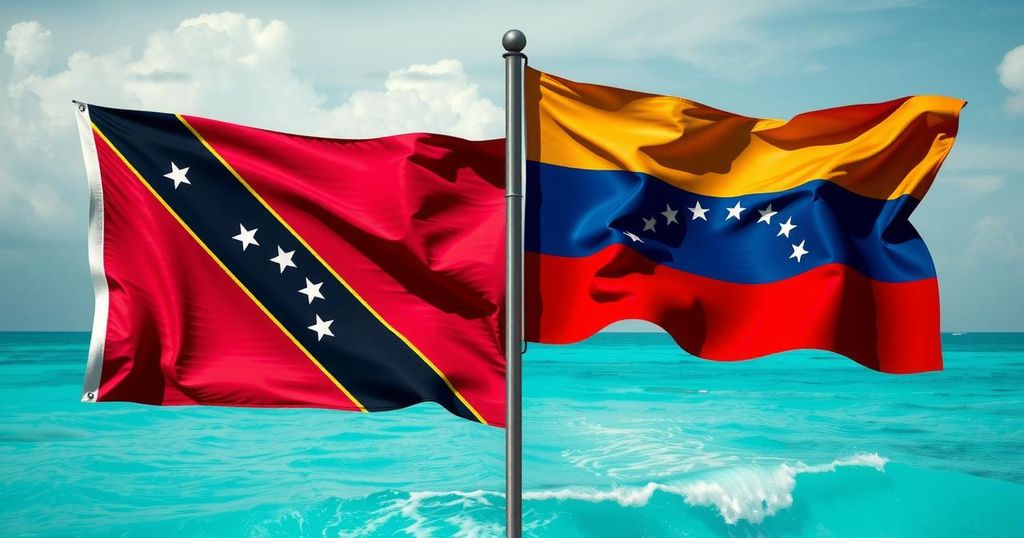Trinidad and Tobago Government Denies U.S. Military Deployment Agreement for Venezuela
Prime Minister Dr. Keith Rowley of Trinidad and Tobago denied reports suggesting an agreement with the United States for military deployment against Venezuela. He stressed the inaccuracies of the claims, emphasizing Trinidad’s commitment to peace and non-interference in foreign conflicts. The Prime Minister’s comments were made in response to a news article that misrepresented the nature of recent discussions with U.S. officials, focusing instead on security cooperation.
The Government of Trinidad and Tobago, led by Prime Minister Dr. Keith Rowley, has firmly rejected claims that an agreement was established with the United States enabling the deployment of American forces to Trinidad and Tobago in the case of a conflict arising in Venezuela. At a recent press briefing, Dr. Rowley expressed concern over a newspaper report that suggested Trinidad and Tobago was available for military incursions by the United States due to Venezuela’s instability. He emphasized the inaccuracy of the claims and highlighted the potential ramifications such misinformation could have on the nation’s diplomatic relations and regional stability.
Dr. Rowley articulated, “Where did you get it from that we are in a position to make Trinidad and Tobago available to the United States for troops against Venezuela? This is a serious matter.” He underscored Trinidad and Tobago’s role as a nation that prioritizes peace and non-interference in the internal affairs of other countries. The Prime Minister’s statements followed the publication by Newsday, which reported that Trinidad’s National Security Minister had signed specific agreements with the United States, purportedly allowing for military deployment in the event of conflict in Venezuela.
The Prime Minister clarified that recent discussions with U.S. officials focused on various non-military issues, including security and human rights, and that Trinidad and Tobago has historically aligned itself with diplomatic initiatives that underscore regional peace. He declared, “We will not facilitate any such thing and our actions speak louder than our words on this matter.” Dr. Rowley expressed distress about the newspaper article, asserting its implications were detrimental not only to Trinidad and Tobago’s reputation but also potentially harmful to regional cohesion and stability.
In conclusion, the Prime Minister’s assurances highlight Trinidad and Tobago’s commitment to a peaceful Caribbean region and its intention to clarify and uphold its non-interventionist stance, despite reports that may suggest otherwise. He reiterated the importance of accurate reporting and the dangers of misinformation to the national interest.
The article addresses the recent controversy surrounding Trinidad and Tobago’s suspected involvement in military agreements with the United States amidst the ongoing instability in Venezuela. With rising tensions in Venezuela posing regional security challenges, Trinidad and Tobago’s Prime Minister felt compelled to clarify misinformation reported by the media. The context of the discussion includes historical agreements between the U.S. and Trinidad and Tobago related to military cooperation, emphasizing the delicate balance of regional diplomacy and the need for accurate representation of national positions.
In summary, Prime Minister Dr. Keith Rowley has strongly refuted claims that Trinidad and Tobago would provide its territory for U.S. military actions concerning Venezuela. He described such assertions as false narratives that could jeopardize the nation’s reputation and diplomatic relationships. The Prime Minister’s comments reaffirm Trinidad and Tobago’s commitment to maintaining peace in the Caribbean region while calling for responsible media reporting that aligns with the nation’s actual diplomatic objectives.
Original Source: jamaica-gleaner.com




Post Comment